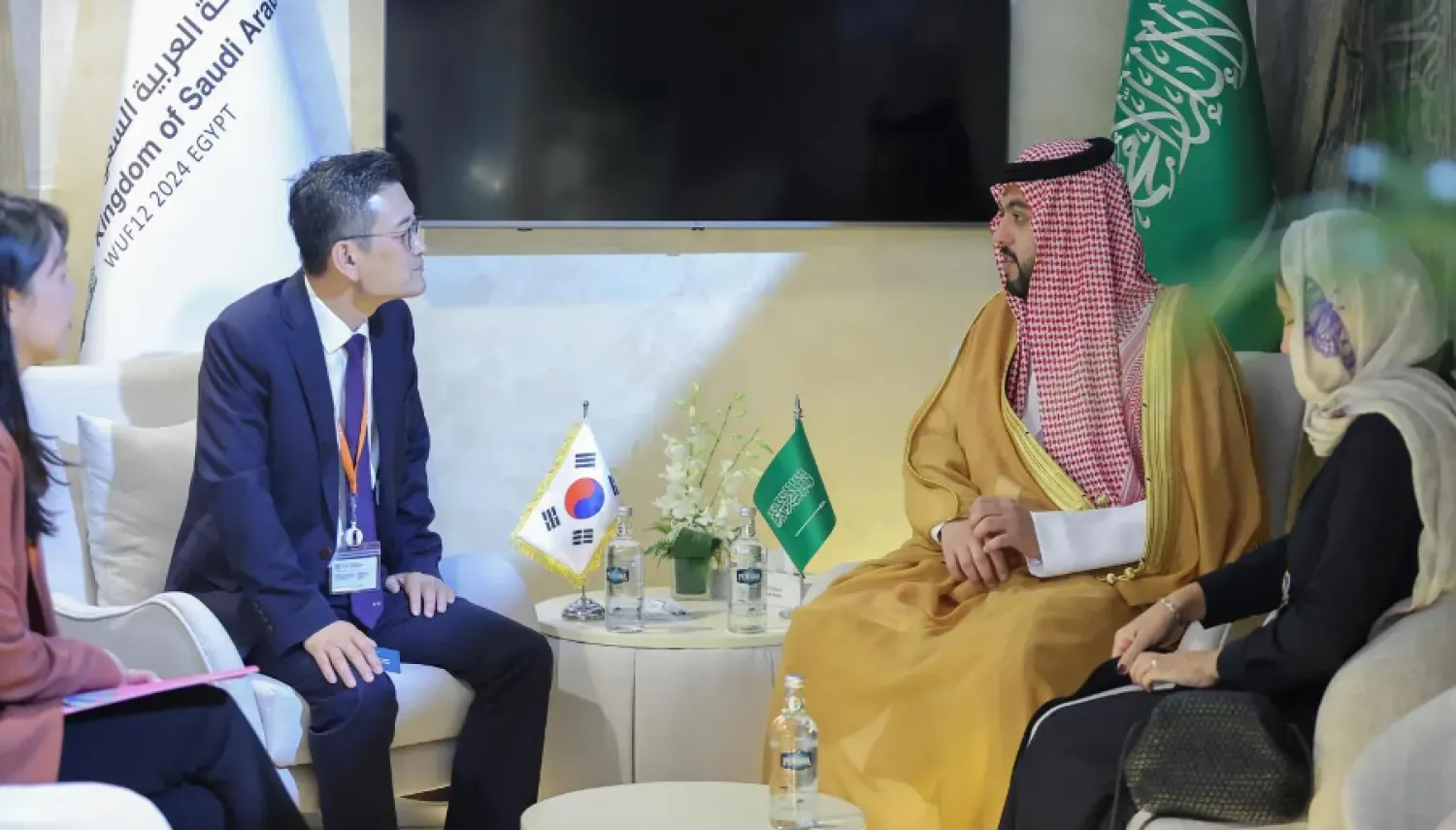CEO of the Quality of Life Program Khalid Albaker met in Cairo with a South Korean delegation, headed by Secretary General of the World Smart Sustainable Cities Organization Jeong-kee Kim, to discuss management of natural resources and the improvement of urban landscapes in alignment with the United Nations Sustainable Development Goals.
The meeting on the sidelines of the 12th World Urban Forum, held in Cairo from November 4 to 8, aimed at strengthening ties and exchanging experiences in quality of life and city sustainability, SPA reported.
The two sides underscored the importance of exploring new opportunities to implement joint strategies that promote sustainable cities and enhance community well-being, prioritizing people in urban development agendas.
This meeting is part of the program's efforts to bolster international partnerships to achieve the objectives of the Kingdom's Vision 2030 to improving the urban landscape and enhancing the quality of services in cities.
Saudi, South Korean Officials Discuss City Sustainability at World Urban Forum

The two sides underscored the importance of exploring new opportunities to implement joint strategies that promote sustainable cities - SPA

Saudi, South Korean Officials Discuss City Sustainability at World Urban Forum

The two sides underscored the importance of exploring new opportunities to implement joint strategies that promote sustainable cities - SPA
لم تشترك بعد
انشئ حساباً خاصاً بك لتحصل على أخبار مخصصة لك ولتتمتع بخاصية حفظ المقالات وتتلقى نشراتنا البريدية المتنوعة







